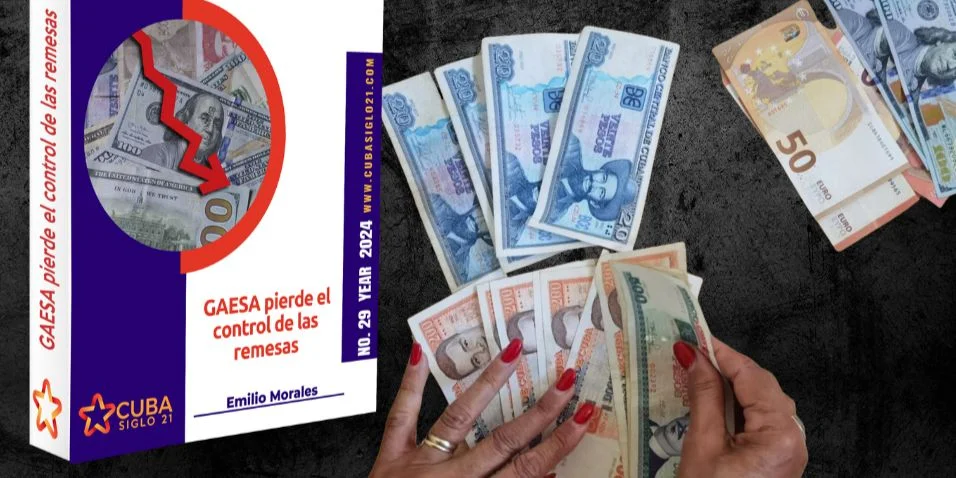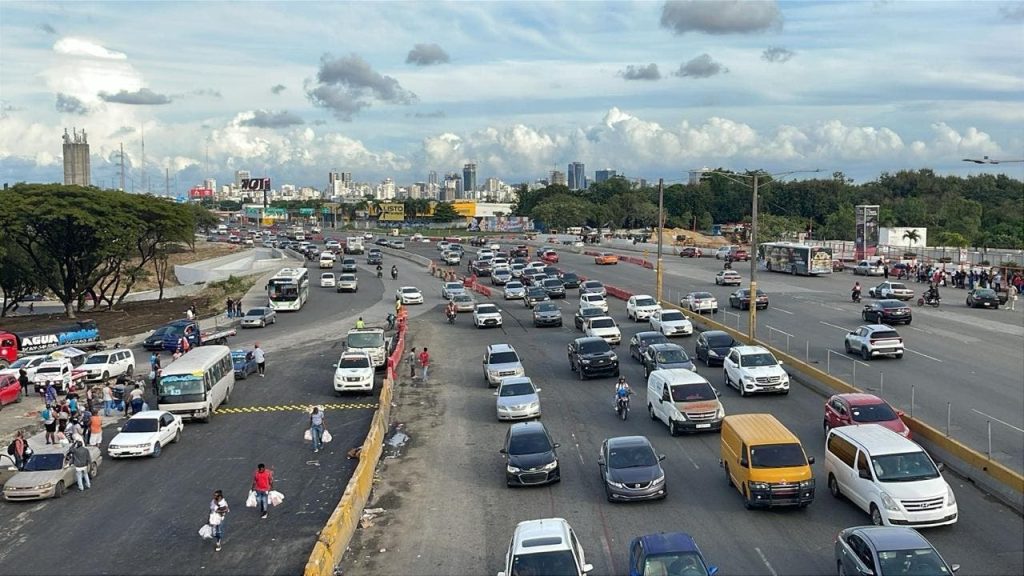First, the good news: During 2025, the Colombian economy should show greater dynamics than the year that ends. The vast majority of experts agree that the higher expected growth will be related to an improvement in household demand and acceptable investment performance in a context of falling interest rates.
(Read: Usury rate fell again: how much will it be in January 2025?).
Second, such forecasts are accompanied by multiple messages of caution. The reason is that there are a series of upward risks to which it is mandatory to pay attention to avoid unpleasant surprises. And these threats are emerging both on the external and internal front, which is why there is no other option than to raise our guard..
Such a combination of desires and alerts suggests that the coming months will be hectic in economic matters. For this reason, those who know about these things advise tightening their seatbelts with a view to the journey, since the trip is destined to be turbulent.
(See: Raising the minimum wage does not worry Mario Hernández: ‘we will open 4 more stores’).
Because of this, we must go beyond a couple of forecasts, without completely ignoring them. For example, a few days ago, The Economic Commission for Latin America and the Caribbean (ECLAC) maintained that the expansion of the country’s Gross Domestic Product would go from a rate of 1.8 percent in 2024 to 2.6 percent in the coming calendar. After a two-year period of being below the regional average, we would once again be slightly above it.
Something along the same lines with differences that are measured in tenths of a percentage point is what multilateral entities such as the International Monetary Fund (IMF) and the World Bank think. For its part, the OECD pointed out at the time that “private consumption will remain solid, supported by disinflation, monetary policy easing and significant remittances”.
Colombian economy.
iStock
complex planet
If these organisms seem so confident in their bets, why the fears? The response starts from a very complex global environment, in which geopolitical tensions persist.
The list is familiar: war with no end in sight in Ukraine, worsening of the situation in the Middle East after what happened in Syria, disturbing signals from China towards its neighbors in the Pacific, humanitarian emergencies in Gaza or Sudan, to which Add to this the internal setbacks in France or Germany that affect the cohesion of the European Union, just when Vladimir Putin seems to be doubling down on his bet.
But what causes the most frowns is Donald Trump’s return to the White House. If in 2017 few initially believed the magnate’s bravado, now the majority takes him seriously when he announces measures to restrict imports that reach their country and threatens his main trading partners.
(Besides: Salary x-ray: this is the minimum in Colombia in relation to other countries).
There is no doubt that the Republican leader returns “recharged” to the presidency of the United States due to a large electoral victory and after securing his party’s majority in Congress. Both elements give him a kind of blank check with which he will try to alter the balance of the system of checks and balances of constitutional origin, in addition to redefining the role of his country in the global concert..
More protectionism, combined with an eventual rebound in inflation and a monetary policy that seeks to tamper with prices through higher interest rates, ends up being a feasible scenario with ramifications in the most diverse latitudes. A stronger dollar will imply a greater devaluation, combined with higher financing costs and possible restrictions for certain export items that interest Colombia..
And to the above is added the new face of Uncle Sam towards Latin America, which does not seem to be very cordial. It is enough to record what has been said regarding the Panama Canal in recent days or the appointment of Marco Rubio in the State Department and Mauricio Claver-Carone as special envoy to the Americas to conclude that confrontation and not cooperation will characterize the American attitude in the years to come.
Within this scenario, Washington will use its “big stick,” either to put more effective curbs on illegal immigration or to achieve better results in the fight against illicit drugs. This will include much more explicit instruments than diplomatic pressure or promises of aid, such as commercial, financial or tourist restrictions.
Besides, There is the issue of mass deportations of people who are in an irregular condition, the vast majority of Hispanic origin.. Even if the expulsions end up being a fraction of the more than ten million individuals that have been mentioned, the impact of an untimely arrival of compatriots to their places of origin will cause trauma of various kinds.
One would be the flow of remittances, which this year would exceed 160 billion dollars to the region and whose main contributors are those who work in the United States. In the Colombian case, these represent the second most important source of foreign currency, after the sale of hydrocarbons.
(Here: Petro defended adjustments to subsidies in 2025: ‘they are for poor children, women and the elderly’).
It remains to be seen, of course, how much of what is stated or implied ends up becoming reality. Those who watched the television show The Apprentice remember a Trump who negotiated very hard, simply to “soften” their opponents and obtain concessions that were sometimes acceptable.
Because of this, not everything the next tenant of the White House says should be taken literally. But to think that the era of constructive dialogue and mutually beneficial achievements is going to be left behind sounds very possible.
That is why the ideal would be not to fall into provocations, which will most likely be aimed at left-wing democratic governments. Brazil and Mexico are on high alert, among other things, because their internal imbalances make them vulnerable, as shown by the recent decline of the real against the dollar. Colombia, which does not have everything with it either, is obliged to act with a cool head so as not to create unnecessary problems..

Colombian economy.
iStock
From behind closed doors
The reason is that the national economy is similar to those patients whose vital signs begin to improve, but who must be cared for to avoid a relapse. It is true that in 2024 things ended up being a little better than what was thought in January, since both growth ended up being above initial calculations and inflation reduced its pace noticeably.
Apart from these achievements, unemployment also decreased, as did the external deficit, which a few years ago became very high. Sectors such as agriculture stood out, due to – among others – the good performance of coffee, whose production rose by almost 20 percent in the midst of a bonanza in international prices..
Given this evolution, technicians, starting with those at the Bank of the Republic, came to speak of a more comfortable future. Simply put, the expectation was that a certain calm in the course of prices would allow the Issuer to lower interest rates, which would make credit cheaper and boost domestic demand. Achieving growth close to three percent annually in 2025 did not sound far-fetched until recently.
However, a few weeks ago, the wind began to change direction. From the political sphere, the moderation of government rhetoric that a few expected never came, much less the signing of the great national agreement that would have allowed the construction of consensus.
If something marked the end of the legislative sessions in the third week of December, it is that the distance between the Executive and Congress is increasingly greater. Far from building bridges, the House of Nariño increased its attacks, which calls into question the passage of several of its flagship reforms..
There is no doubt that the initial proof of the breakup occurred during the discussion of the bill that sought to define the 2025 national budget. For the first time in recent Republican history, the lack of agreement in the chambers led to an unprecedented situation such as the issuance of the norm by decree.
Behind the measure there is also a major headache, such as the great deterioration of public finances. The combination of a collapse in state income and a greater appetite for spending will mean that the deficit this year will far exceed that of 2023 and that the Petro administration may fail to comply with the limit established by the fiscal rule.
Even if – by eliminating items at the last minute – the Ministry of Finance manages to balance the accounts for the current year, what follows is even more difficult. Numerous technicians have insisted that next year’s collections are inflated, which is why it would be necessary to make a snip of tens of billions of pesos now to honesty the figures and send a report of tranquility.
Such a request is met with a President who questions orthodoxy, just when the electoral campaign is heating up. Making austerity triumph while the Historical Pact seeks to remain in power – which requires responding to the expectations of the electorate – will be a titanic task..
Apart from the above, there are crises that are creeping in and threaten to put the economy in trouble. The list is headed by health, which, in an extreme case, would compromise millions of users and threaten to create a cascade of non-payments between the links in the chain, which could extend to other lines.
No less important is what happens with energy. On the one hand, the country is no longer fully self-sufficient in natural gas, which means it will have to import part of its needs at prices that are quadruple domestic prices. Establishing how burdens are distributed will not be easy, especially within a weakened institutional framework..
Even more challenging is the adequate supply of electricity, since the margin between existing generation capacity and demand is increasingly narrow. A prolonged drought or damage to a plant could force power outages, with negative consequences on production, consumption and social well-being.
It may be less noticeable, but within the sector there is a growing chaos that affects the production, distribution and marketing segments of kilowatts. Air-e’s intervention on the Atlantic Coast risks becoming the first piece of a domino that falls and could knock down more. All this while the Government is committed to lowering rates, with which several investment projects are being discussed.
Finally, the increase in the minimum wage now appears in a proportion of such magnitude that it was criticized by specialists. Playing with price stability and formal employment to receive the applause of a sector of workers is a bet that compromises the path of reactivation.
As with health or energy, here the aftershocks of a possible earthquake would do a lot of damage in the economic field. That is the reason why the calls for the authorities in charge to open their eyes wide and operate responsibly in the midst of the vicissitudes are increasing in tone.
In the end, it is not about creating unnecessary worries, but about recognizing that uncertainties are the order of the day, both internationally and domestically. In fact, Colombia could consider itself well served if forecasts like ECLAC’s come true and we manage to grow more while inflation is kept at bay.
“New year, new life”says the song that is playing again these days. But once the euphoria of the twelve bells passes, the problems are the same again and they must be faced. Only in this way will the Colombian economy avoid a hangover due to what could have been and was not.
RICARDO ÁVILA PINTO
In X: @ravilapinto
















